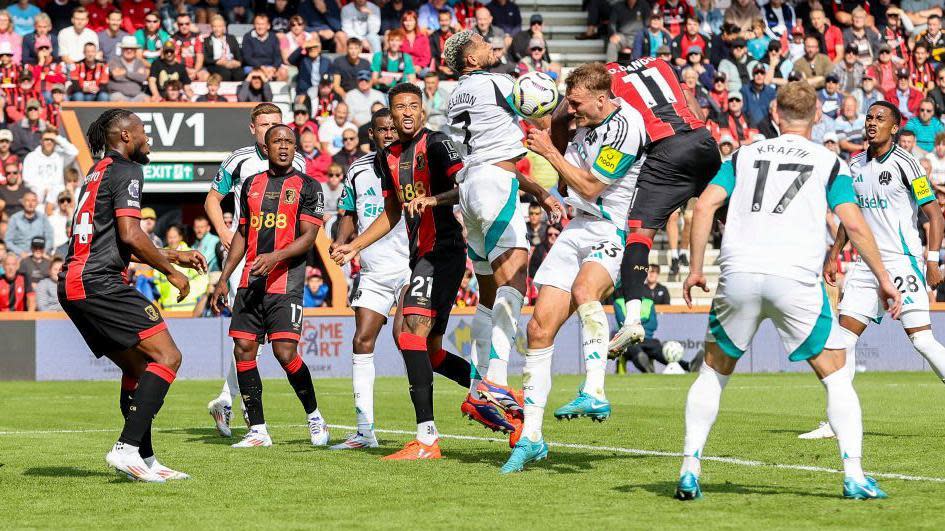


Referee Chris Kavanagh said he “didn’t like” the decision to send off Declan Rice in Arsenal‘s draw with Brighton last month, but said he “had no choice”.
Rice was sent off during the 1-1 draw at the Emirates Stadium for a second yellow card after nudging the ball away from Joel Veltman as he prepared to take a free-kick.
Arsenal manager Mikel Arteta said he was “amazed, amazed, amazed” at the decision immediately after the match.
Audio released on Tuesday night from the Premier League’s latest episode of Mic’d Up revealed Kavanagh said he had no choice but to show the England midfielder a second booking.
“I don’t like it, but he’s knocked the ball,” said Kavanagh.
“Second yellow, for me. I had no choice, he knocks the ball away. As [Veltman‘s] about to kick it, he knocks the ball.
“I have no choice. He’s put me in an awful position. Dec, you need to go I’m afraid.”
The decision, supported by the Key Match Incidents panel, was also backed by Howard Webb, chief operation officer of the Professional Game Match Officials Limited (PGMOL).
“He’s clearly seen Declan Rice commit a foul, then kick the ball away for an opponent that was in the process of taking a free-kick,” Webb told Mic’d Up.
“We’ve messaged very clearly and strongly to the players in pre-season around the importance of not getting involved with the ball once the whistle is gone, not delaying the restart in that way.
“Once he’s seen Declan Rice deliberately, clearly kick that ball away from the position of that free-kick, then I don’t think he’s got any choice.”
In the same match, Brighton forward Joao Pedro also kicked the ball away, but received no punishment.
While Webb felt they were different scenarios, he did say Kavanagh should have booked the Seagulls’ forward.
“It sits in the same kind of book around delaying the restart. Of course, he should have been cautioned here,” said Webb.
“The officials on the field gave him too much benefit of doubt.
“They do delay Arsenal’s ability to restart. We’ve certainly messaged that back to the officials.”


Among the six decisions assessed in the latest edition of Mic’d Up was Bournemouth’s disallowed late goal against Newcastle United.
Dango Ouattara’s header from a corner was ruled out late on at the Vitality Stadium, with the ball hitting the top of his arm.
With no conclusive evidence as to whether the ball was low enough on Ouattara’s arm to deem it a handball, Webb said it was incorrect of video assistant referee (VAR) Tim Robinson to intervene, with no evidence either way to prove whether or not it was a handball.
“In this situation, the ball strikes Ouattara’s shoulder, upper-arm area. It’s hard to be totally conclusive as to exactly where,” said Webb.
“The VAR looked at this and decided that, in his professional opinion, that was in the area of the arm that has to be penalised below the bottom of the armpit. That’s the important reference point. I don’t think that’s conclusive enough to intervene.
“Equally, if the goal had been disallowed by the on-field officials, I don’t think there’s evidence here to say that there’s no handball either. So again, it goes back to referee’s call. It’s an important concept. And for those factual matters you need evidence. It’s very clear that the on-field call is wrong, I don’t think we have it here.”